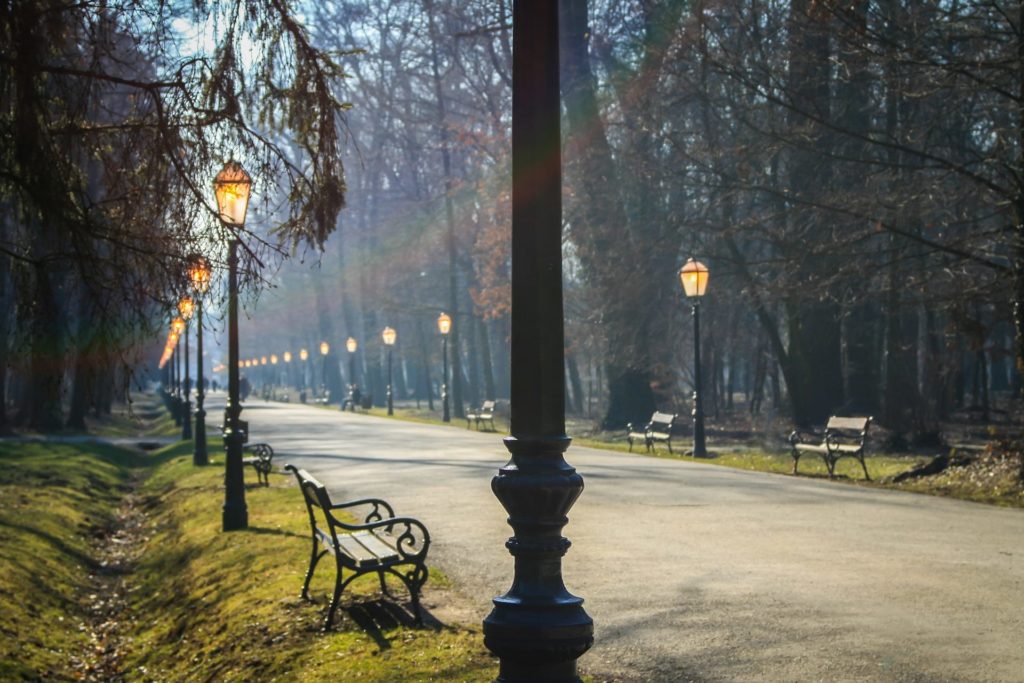Championing Urban Forests for Human Well-Being
Unfamiliar with the term ‘urban forests’? Here’s a breakdown. Urban Forests as Nature-Based Solutions (UF-NBS) are a subset of nature-based solutions that build on tree-based urban ecosystems to address societal challenges, simultaneously providing ecosystem services for human well-being and biodiversity benefits. UF-NBS include peri-urban and urban forests, forested parks, small woods in urban areas, and trees in public and private spaces. Simply put, trees are being leveraged as solutions to diverse issues ranging from air pollution to climate change.
The value of trees and green spaces in our urban environments has intensified since the outbreak of COVID-19. The pandemic is transforming our society. All the basic elements of living together have radically changed: where and how we work, whom we spend time with, whom we care about, and what tasks and activities keep us busy. During the lockdown, people have been flocking to green spaces and urban forests for physical exercise and mental calm. It turns out that trees are beneficial for a lot more than the oxygen that we need to breathe – they are also advantageous to our mind and overall well-being.

In actual fact, the many services urban forests offer to natural ecosystems and society were proven long before the COVID-19 pandemic. They regulate temperature and provide shade, filter air pollutants, sequester carbon, manage and filter rainwater, stabilize soils and maintain soil health, provide food and shelter for living organisms, promote mental and physical well-being, and improve recreation and aesthetics. Of course during the pandemic these benefits became ever more visible: trees are key amenities and a source of enjoyment during lock-down routines and contribute to preserving and improving people’s mental and physical health, which has helped get them through these difficult times.
Although trees are an answer to diverging urban challenges, there are also challenges related to the use of trees, woodlands, and forests in urban environments.
Can trees really improve urban living?
Cities and researchers in China and EU are experimenting with UF-NBS at different urban scales, from the regional and peri-urban to the street level. These efforts create a living laboratory for new ideas on how to plan, establish, govern, manage, and monitor tree-rich landscapes for the benefit of urban societies at large.
At the same time, there is an urgent need to systematically review, connect and expand the existing fragmented knowledge and experience of the potential of UF-NBS. This need is the starting point for where projects like CLEARING HOUSE come in, bringing together two major arenas of urban development (Europe and China). Case study cities have been identified and paired and specific challenges have been identified. The motivation? To share across local experiences and to improve the development of what is collectively termed the “urban forest” at a larger scale.
CLEARING HOUSE is analyzing and developing the potential of nature-based solutions in general, and UF-NBS in particular – to enhance the resilience of cities facing major ecological, socio-economic, and human well-being challenges.
Nature Based Solutions
Urban trees and urban forests are ‘traditional’ solutions already in place in most cities globally. These contribute to the livability of urban areas, while simultaneously creating health and attractive living environments. The COVID-19 crisis has emphasized the importance of access to green spaces for people, with recent research indicating that those living closer to urban forests are less likely to suffer from depression. Yet these ‘solutions’ are under threat from climate change and the ongoing battle for space in urban areas.

Sino-European collaboration has looked to address some of these issues, learning from each other to overcome the barriers to inner-city forests. According to Rik De Vreese, CLEARING HOUSE’s European project coordinator, “we are learning so much from each other, but there is still a lot to be discovered. China excels at looking into aspects like aesthetics related to urban trees, or into biophysical impacts of urban forests and urban trees, whereas Europe has a stronger record when it comes to looking into the perception and societal aspects related to urban greening.” Both Europe and China have committed to working towards carbon-neutrality, but more needs to be done in expanding the role of urban forests and urban trees to reach this goal.
While urban forestry in China and Europe are different, both governments are aware of the significance of urban forestry to the urban ecological environment, as well as to the health of the general population. Wang Cheng, Chinese project coordinator of CLEARING HOUSE, states “in recent years, both Chinese and European researchers have devoted themselves to the application of urban forests as nature-based solutions in cities of different sizes and scales, they have also developed their own theoretical systems.” This exchange of theoretical information can help establish a more scientific and theoretical framework when it comes to future urban forest construction.
No price on nature
Urban forests cannot be bought or sold. Wetlands cannot be dug up and transported from one city to another. Cities must build their ecosystems independently – preserving urban forest resources and incorporating urban green spaces in future urban planning. In recent years, Beijing, Xiong’an and the Binhai New City in Fuzhou have planned and built urban forests as ecological infrastructures in their new urban districts simultaneously by allowing forest trees to grow together with the city – something that has never been done before. Take Beijing as an example, the government launched the largest plain afforestation project in its history. With the aim of ‘two rings, three belts, nine wedges and multiple corridors.’ As a result more than 54 million trees were planted between 2012 and 2015. The government has since implemented a new round of plain afforestation from 2018 to 2021, the forest coverage of Beijing plain area has been able to increase from 14.6% (in 2011) to 30.4% (in 2020).
Researchers are currently creating case studies in several European cities, including Leipzig, Krakow, Barcelona and Brussels. As part of their research, they are matching up these cities with comparative examples in China, such as Hangzhou Xiamen, Hong Kong, and Beijing.
They hope that with further collaborative research, success stories like the one in Beijing will no longer be an outlier, but instead become the norm. Across Asia and Europe, our cities and those living in them are desperate for more green spaces. With this further collaboration, we can hope to see urban greening go even further, and potentially change the lives of millions.
For both our health and that of the planet, it cannot come soon enough.